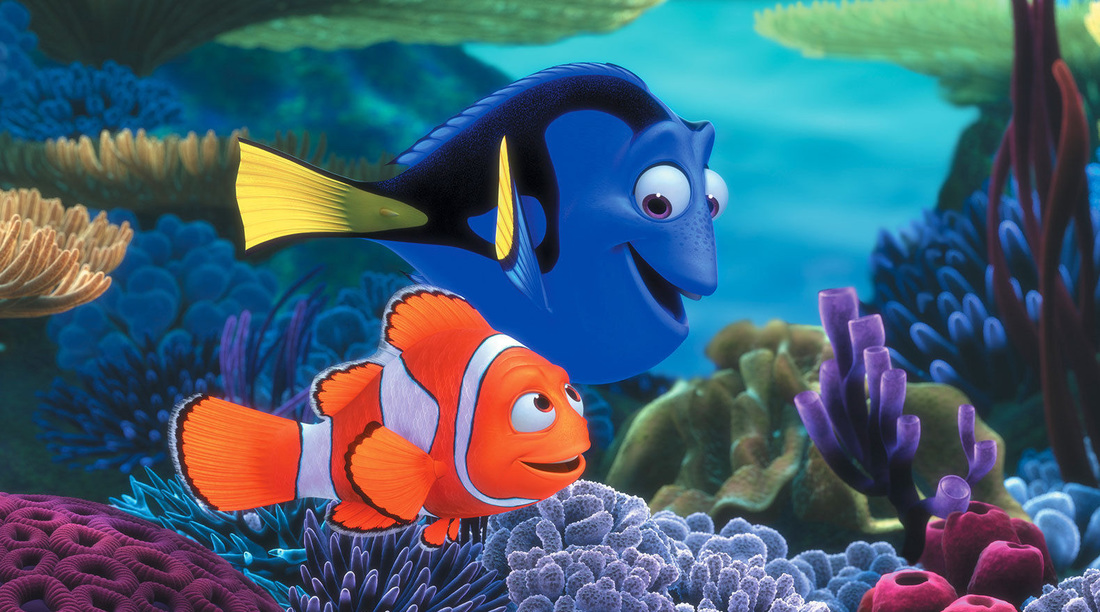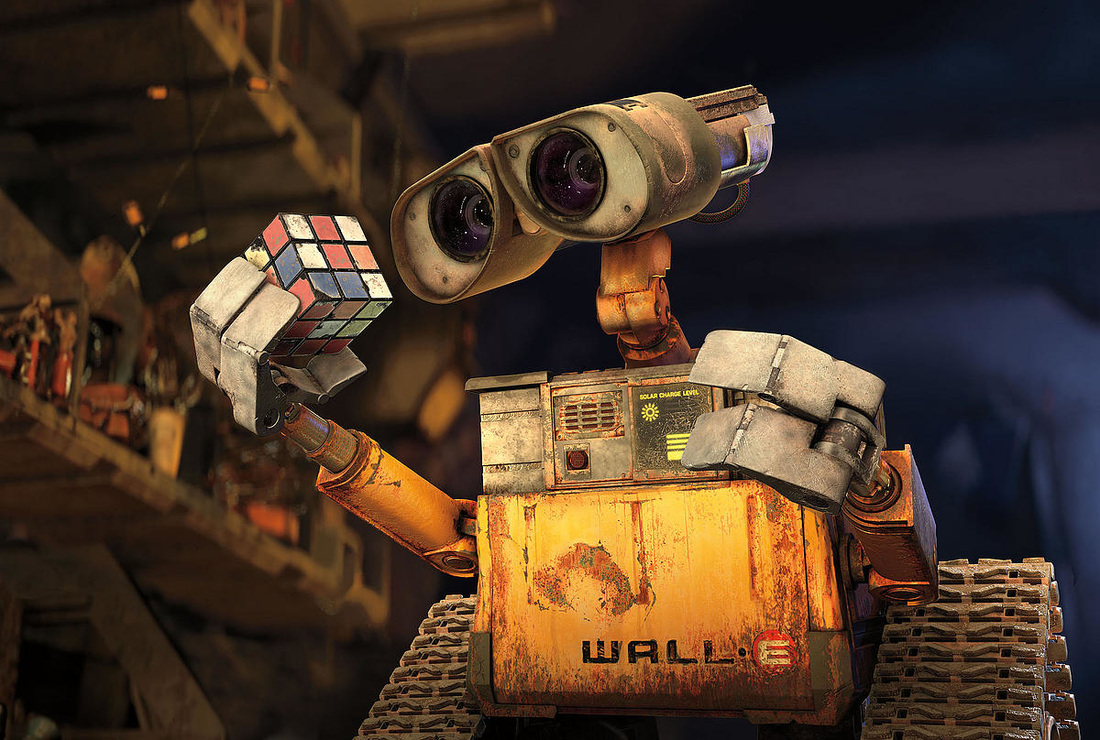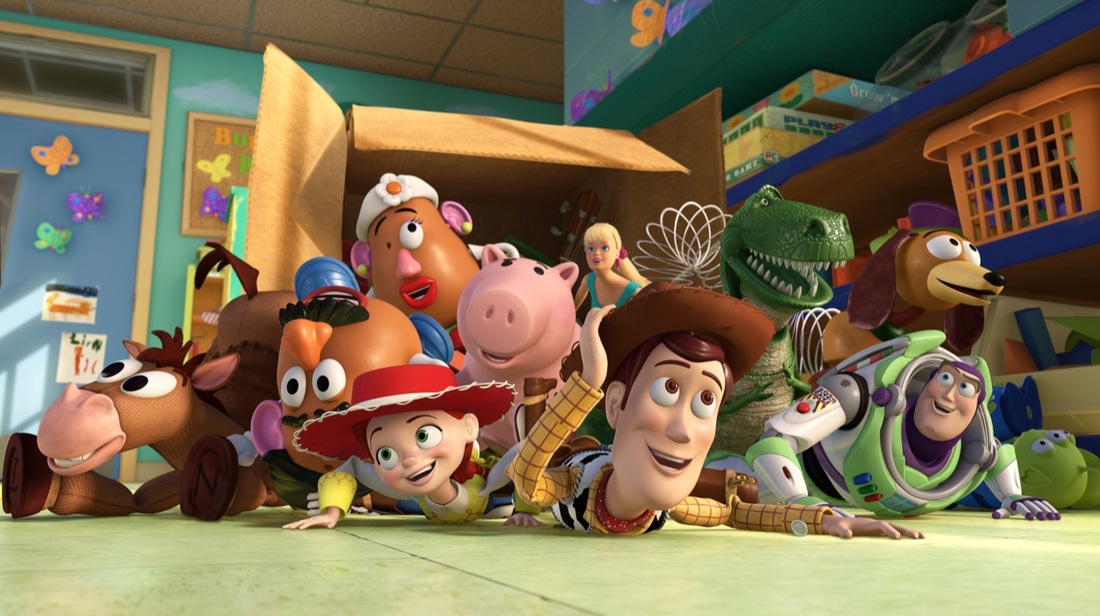Finding Nemo
Just reading this plot description shows how much depth Pixar movies have, tackling far more adult themes than many other children’s movies. Marlin’s over-protective nature is logical, with the audience having seen everything he’s been through, but Nemo’s yearning for adventure is understandable as well. These themes make both of the main characters very relatable, giving them depth that I wouldn’t have expected out of animated fish. Marlin has to grow to except the world for what it is, a dangerous place that he can’t always control. He can’t constantly keep his son safe, even if he wants to, and that is a very deep and powerful message for a kid’s movie to deal with. The movie tackles these ideas tastefully and maturely, not talking down to the children in the audience but teaching them.
Andrew Stanton’s animated films also make for excellent worlds, and the world that Finding Nemo creates is as vibrant and energetic as any. The movie, with its world of intelligent sea creatures, feels as though it is constantly moving. It feels alive, with an unstoppable energy and creative power. There seems to be no limit to Pixar's creativity, and Finding Nemo is one of their many worlds that keeps the audience constantly hooked.
Grade: A
WALL·E
The message of this film is probably Pixar's most profound, opting to tackle issues of the world rather than those of individual characters. Environmental issues plague many, and WALL·E does an excellent job at displaying the types of consequences that letting these issues go unsolved may bring. The planet that WALL·E is tasked with cleaning up resembles a post-apocalyptic version of the world we know, drowned in pollution, trash and commercialism. The first half of the film is nearly void of all dialogue, as WALL·E speaks very little, merely opting to use the silence of the abandoned earth to let the message sink in. The eeriness of the abandoned planet, with its mountains of trash and debris, really drives home the idea that people need to take better care of our planet.
Once the film moves to space, we get to see what effect the destruction of the planet has on the human race, making people even more lazy and unwilling to solve their planet’s problem. Unfortunately, some of the charm of the film is lost when it moves to space. The first half of the movie, with no dialogue, is a very interesting way of telling the story of Earth’s decay, and of WALL·E’s isolation. The lack of dialogue makes for some great silent humor and clever storytelling, and the movie becomes much more standard when it moves to space. And, although the space sections of the movie are beautiful (some of the best animated I have ever seen), the human characters are far less interesting than the robot ones. Overall, however, the movie is an excellent look at the effect that environmental ignorance can have on the world.
Grade: A-
Toy Story 3
The Toy Story series may be best known for it's excellent characters, and this movie doesn’t disappoint on that front in the slightest. All the wonderful characters from the first two films are back, just as interesting as ever, with the addition of some great new characters as well. The idea of toys coming to life, and being aware of the fact that they are toys, is just as interesting here as it has ever been, and the film masterfully creates a lot of great humor using this idea. The scene where the toys create a The Great Escape-style plan to leave the day-care center is especially imaginative.
The reason that this is my favorite Toy Story film, however, revolves more around the message and the story. Andy’s moving to college and struggles with deciding what he wants to do with his toys is easily identifiable for anyone who has moved to college or to a new place. And while we may not have cared much about our old toys, it is what they represent that I so deeply identified with. Moving to college was a very uncertain experience for me, having never lived anywhere but a small town in Massachusetts. What would living in the city be like? Will I meet people who actually like me? Will I lose ties with my friends from home? Once these questions start to pass through your mind, leaving behind anything that reminds you of your early childhood and of home becomes increasingly difficult. Toy Story 3 really spoke to me, with its precise and accurate interpretation of how leaving home for the first time can be. It is one of a handful of films that actually reduced me to tears, during a scene at the end of the movie that anyone who has seen the film knows well. The emotional weight of that final scene had a profound effect on me, one that I didn’t expect it to have. It’s the kind of scene that still gives me goosebumps when I think about it, makes me glossy-eyed when I see it. The excellence of the film as a whole is propelled through the roof by the power and grace of its final scene, making it a masterwork of not only animated film, but of film in general.
Grade: A+
Last week examined Video Game Movies in preparation for the release of Warcraft.



 RSS Feed
RSS Feed
